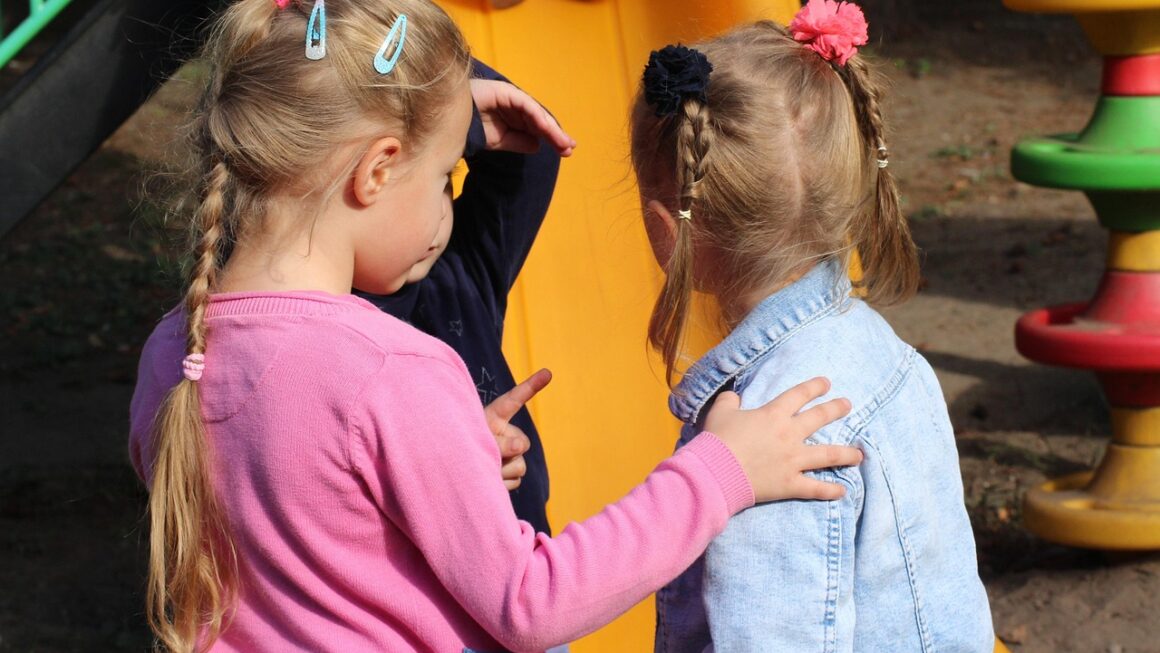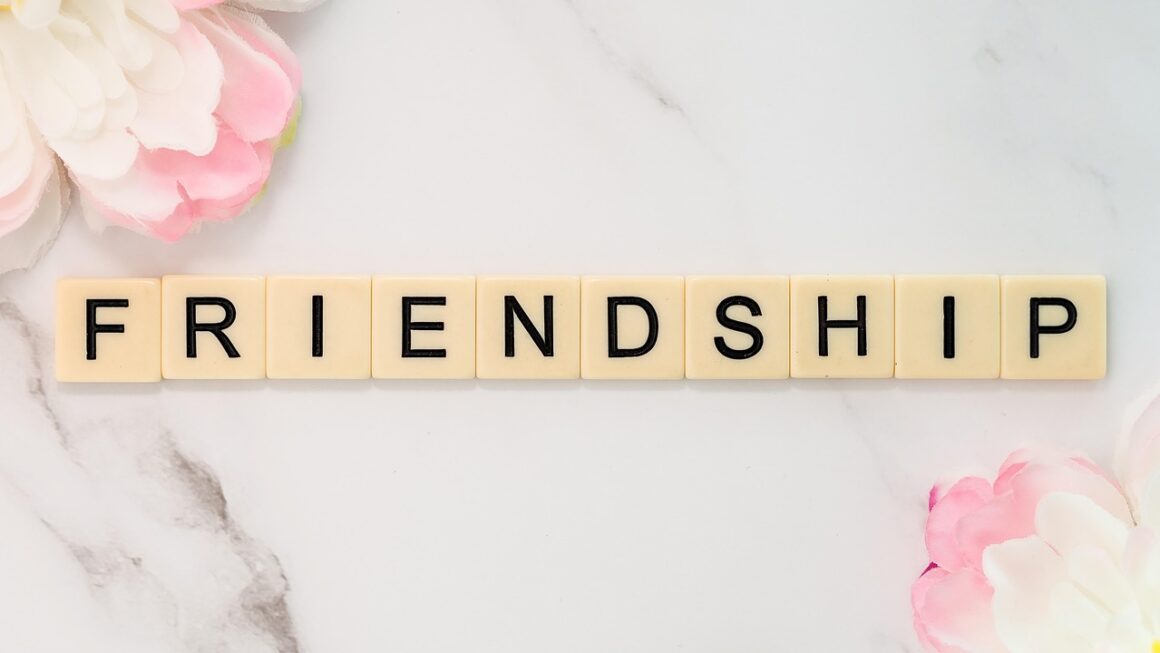Navigating life’s journey can feel like traversing a vast and sometimes treacherous landscape. Amidst the challenges and celebrations, the presence of true friends acts as a guiding star, illuminating the path and providing unwavering support. But what exactly defines a “true friend,” and how do we cultivate and cherish these invaluable relationships? This article delves into the essence of true friendship, exploring its characteristics, benefits, and practical strategies for nurturing these vital connections.
The Hallmarks of True Friendship
Unconditional Acceptance and Support
True friends accept you for who you are, flaws and all. They don’t try to change you, but rather, they encourage you to grow and become the best version of yourself. They offer unwavering support during difficult times, acting as a shoulder to cry on, a listening ear, and a source of strength.
- Example: A true friend won’t judge you for making a mistake but will help you learn from it and move forward. They celebrate your successes, big or small, and offer encouragement when you face setbacks.
- Practical Tip: Practice active listening when a friend is sharing their struggles. Put aside your own thoughts and focus on truly understanding their perspective. Offer empathy and avoid judgment.
Trust and Honesty
Trust is the bedrock of any strong relationship, and true friendship is no exception. True friends are honest with each other, even when it’s difficult. They are reliable and keep their promises. You can confide in them without fear of betrayal or judgment.
- Example: A true friend will tell you honestly if they think you’re making a bad decision, even if it’s not what you want to hear. They do this because they care about your well-being.
- Statistics: Studies show that people with strong social support networks, built on trust and honesty, experience less stress and have better overall mental health.
- Actionable Takeaway: Be transparent and truthful in your interactions with your friends. Build trust by being reliable and keeping your word.
Mutual Respect and Understanding
True friends respect each other’s opinions, even when they disagree. They value each other’s perspectives and are willing to learn from each other. They understand each other’s boundaries and respect their need for space.
- Example: You and a true friend might have different political views, but you can still have respectful conversations about your differences. You value their perspective, even if you don’t agree with it.
- Practical Tip: Practice empathy. Try to see things from your friend’s point of view, even if you don’t necessarily agree with it. Acknowledge their feelings and validate their experiences.
Shared Values and Common Interests
While differences are important, sharing some core values and common interests can strengthen a friendship. These shared connections provide common ground and opportunities for shared experiences.
- Example: You and a true friend might share a love of hiking, reading, or volunteering. These shared interests provide opportunities to spend time together and bond over shared passions.
- Practical Tip: Identify shared interests and plan activities together that you both enjoy. This could be anything from attending a concert to taking a class to simply grabbing coffee and chatting.
The Benefits of True Friendship
Improved Mental and Emotional Health
True friends provide a sense of belonging and connection, which can significantly improve mental and emotional well-being. They offer a support system that can help you cope with stress, anxiety, and depression.
- Statistics: Research indicates that individuals with strong social connections have a lower risk of developing mental health problems such as depression and anxiety.
- Example: Having a true friend to confide in during a difficult time can help you process your emotions and feel less alone. They can offer a different perspective and help you find solutions.
Increased Resilience and Self-Esteem
True friends can help you build resilience and self-esteem. They believe in you, even when you don’t believe in yourself. They encourage you to pursue your goals and celebrate your achievements.
- Example: A true friend might encourage you to pursue a new career path, even if you’re hesitant. They believe in your potential and help you overcome your self-doubt.
- Actionable Takeaway: Surround yourself with people who uplift you and make you feel good about yourself. Distance yourself from those who are negative or critical.
Enhanced Physical Health
Believe it or not, true friendship can even have a positive impact on your physical health. Studies have shown that strong social connections can lower blood pressure, boost the immune system, and even increase longevity.
- Statistics: Studies suggest that individuals with strong social support networks have a lower risk of heart disease and stroke.
- Example: Having a true friend to exercise with can make it more enjoyable and help you stay motivated. Sharing healthy meals together can also support your overall well-being.
Cultivating True Friendships
Be Proactive and Initiate Contact
Don’t wait for others to reach out to you. Be proactive in initiating contact with your friends. Send them a text, give them a call, or invite them to do something fun.
- Practical Tip: Set a reminder on your phone to reach out to a different friend each week. This will help you stay connected and maintain your relationships.
- Example: Send a quick text message saying, “Thinking of you! How’s your week going?”
Make Time for Your Friends
In today’s busy world, it can be challenging to find time for friends. However, making time for them is essential for maintaining strong relationships.
- Practical Tip: Schedule regular “friend dates” in your calendar. This could be anything from a weekly coffee date to a monthly game night.
- Actionable Takeaway: Prioritize your friendships and make them a regular part of your life. Even small gestures, like a quick phone call or a thoughtful text message, can make a big difference.
Be a Good Listener and Supportive Friend
True friendship is a two-way street. Be a good listener and offer your support when your friends need it. Be there for them during difficult times and celebrate their successes.
- Practical Tip: When a friend is sharing something with you, put down your phone and give them your undivided attention. Ask clarifying questions and offer words of encouragement.
- Example: Offer to help a friend who is moving, or offer to babysit their children so they can have a night out.
Forgive and Let Go of Grudges
No friendship is perfect. There will be times when you and your friends disagree or even hurt each other’s feelings. It’s important to be able to forgive and let go of grudges.
- Practical Tip: When you’re feeling hurt or angry, try to communicate your feelings in a calm and respectful manner. Be willing to listen to your friend’s perspective and work towards a resolution.
- Actionable Takeaway: Holding onto grudges can damage relationships. Learn to forgive and move on.
Navigating Challenges in Friendships
Addressing Conflict Constructively
Conflict is inevitable in any relationship. The key is to address it constructively, focusing on resolving the issue rather than blaming each other.
- Practical Tip: Use “I” statements to express your feelings without accusing your friend. For example, instead of saying “You always make me feel…”, say “I feel… when you…”.
- Example: “I feel hurt when you interrupt me when I’m talking.”
Dealing with Distance and Changes
Life changes, such as moving or starting a new job, can put a strain on friendships. It’s important to be proactive in maintaining connections despite the distance or changes.
- Practical Tip: Schedule regular video calls or plan visits to stay connected with friends who live far away.
- Example: Set up a weekly video call with a friend who moved to another state.
Recognizing Toxic Friendships
Sometimes, friendships can become toxic or unhealthy. It’s important to recognize the signs of a toxic friendship and take steps to protect yourself.
- Signs of a Toxic Friendship: Constant criticism, negativity, manipulation, lack of support, and feeling drained after spending time with the friend.
- Actionable Takeaway: If you’re in a toxic friendship, it may be necessary to distance yourself or even end the relationship for your own well-being.
Conclusion
True friendship is a precious gift that enriches our lives in countless ways. By understanding the hallmarks of true friendship, cultivating these relationships, and navigating challenges effectively, we can build lasting bonds that provide unwavering support, joy, and connection throughout our lives. Nurturing our friendships is an investment in our overall well-being, and the rewards are immeasurable. Take the time to appreciate and cherish your true friends, and watch your life blossom with happiness and fulfillment.




